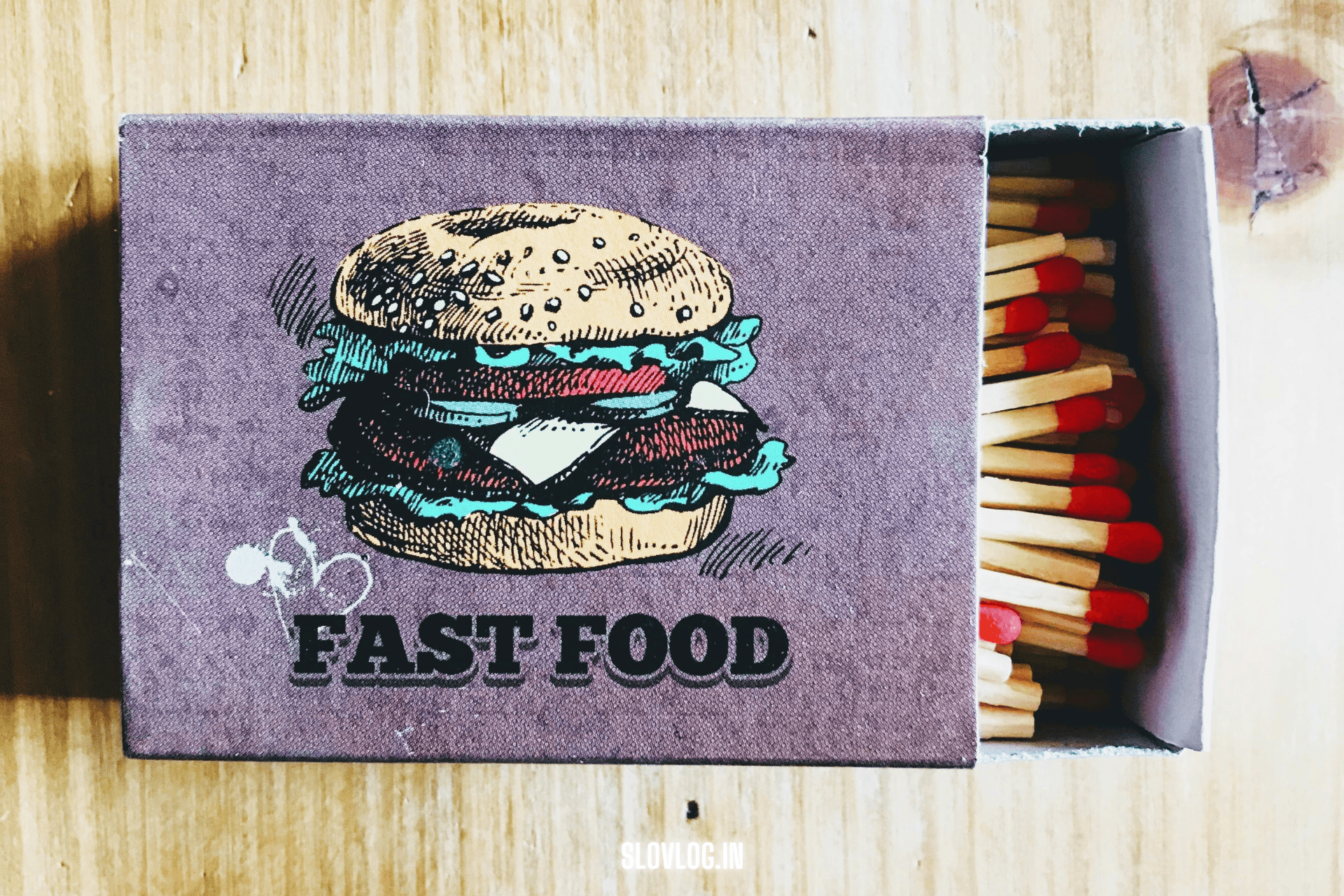The Art of Slow Eating: Why Eating Fast Is Hurting Your Body and Mind
A few years ago, I caught myself finishing lunch before my brain even registered I’d started eating.
Emails, messages, videos — all in the background.
I wasn’t really eating. I was just consuming.
It’s strange how something as natural as eating can become mechanical. We rush meals the same way we rush work — and then wonder why our bodies feel heavy, tired, or off-balance.
When I started slowing down — sitting at a table, taking smaller bites, actually tasting food — everything changed. I wasn’t just less bloated. I felt calmer. My days felt longer. Meals became moments again.
It turns out there’s real science behind that.
How Eating Slowly Improves Digestion
Digestion doesn’t begin in the stomach — it starts in the mouth.
When we eat too fast, we skip the first stage of digestion: chewing.
Harvard Medical School found that eating too quickly leads to overeating because it takes about 20 minutes for the brain to register fullness.
And when food isn’t chewed properly, the stomach has to work harder — which often results in acid reflux, bloating, and poor nutrient absorption.
A 2023 study from the Journal of Clinical Endocrinology revealed that fast eaters have a 42% higher risk of obesity — not because of what they eat, but how they eat.
Slow eating activates the body’s parasympathetic nervous system — the “rest and digest” mode that improves enzyme function and nutrient uptake.
Slow eating habits that help:
- Chew each bite 20–30 times before swallowing.
- Take deep breaths between bites.
- Avoid washing food down with too much liquid — it dilutes digestive enzymes.
When I started doing this, even the same meals left me feeling lighter and more energized.
The Link Between Slow Eating and Weight Control
A 2024 Obesity Reviews study found that people who eat slowly consume 25% fewer calories per meal than fast eaters — without feeling deprived.
When you eat too fast, your brain doesn’t receive the fullness signal in time. It keeps you eating past what your body actually needs.
By simply slowing down, you let your body self-regulate.
And this isn’t about dieting — it’s about rhythm.
Small changes that make a big difference:
- Put your fork down between bites.
- Set a minimum mealtime goal of 20 minutes.
- Focus on flavors, not speed.
Over time, slow eating naturally reduces cravings and stabilizes blood sugar — your body starts trusting you again.
Eating Slowly Reduces Stress and Enhances Enjoyment
When you rush through meals, your body stays in a mild fight-or-flight mode.
That means your heart rate, cortisol, and stress hormones stay elevated — even while eating.
A study from the American Psychological Association found that mindful eating activates the vagus nerve, reducing cortisol and increasing relaxation.
In other words, when you eat slowly, your body begins to rest.
How to bring calm into your meals:
- Pause before eating. Take one deep breath.
- Eat without distractions — no phone, TV, or laptop.
- Notice textures, colors, and scents as much as taste.
At first, it feels strange — almost too quiet. But then, that quiet becomes part of the meal itself.
The Science of Chewing and Nutrient Absorption
Chewing is more than breaking down food — it’s communication between body and brain.
The longer you chew, the more saliva mixes with food, releasing digestive enzymes that help absorb nutrients effectively.
A 2023 study in The American Journal of Clinical Nutrition showed that people who chewed longer absorbed 15% more nutrients from the same meals.
They also reported more stable energy and fewer digestive issues.
What to try:
- Chew until food is almost liquid before swallowing.
- Choose whole, fiber-rich foods that naturally slow you down — raw vegetables, fruits, nuts.
- Sip water between bites instead of gulping it during meals.
Eating slowly isn’t just better for your stomach — it’s better for your mind. It creates a rhythm that tells your body: you’re safe, you can rest, you can digest.
Eating Slowly for Emotional and Social Well-Being
We often think of food as fuel, but it’s also connection.
People who eat slowly and socially report higher happiness and stronger relationships (Journal of Social and Personal Relationships).
Rushed meals turn eating into another task. Slow meals bring back gratitude — for the people, the ingredients, the time it took to prepare.
How to eat more intentionally:
- Eat with others when you can — shared meals naturally slow your pace.
- Pause before eating to express gratitude, even silently.
- Talk more, scroll less. Let meals be a space to reconnect.
I’ve noticed that when I eat with others slowly — no screens, no rush — I leave the table not just full, but fulfilled.
Common Questions About Slow Eating
How long should a meal last?
Ideally 20–30 minutes, enough for your body to register fullness and complete early digestion.
Will eating slowly help me lose weight?
Yes. Slow eaters naturally consume fewer calories and digest better, without restrictive dieting.
What if I don’t have time to eat slowly?
Start small — add just five extra minutes per meal. Put your utensils down more often. Notice your food.
Can slow eating help with acid reflux?
Yes. Fast eating triggers excess acid production, while slow chewing calms digestion and reduces reflux symptoms.
Final Thoughts: Small Changes, Big Impact
Slow eating isn’t a new trend — it’s a return to how our bodies were designed to function.
It’s a daily act of mindfulness that reconnects us with something we often ignore: the present moment.
When you chew slowly, your body thanks you with better digestion, steadier energy, and a calm mind.
When you eat without distractions, food becomes more than nutrition — it becomes nourishment.
Try this today:
At your next meal, add just five minutes.
Put your fork down, take a breath, and actually taste what you’re eating.
That’s where mindfulness begins — not in meditation, but in the simple act of paying attention.
Slovlog Insight
At Slovlog, we believe slow eating is the foundation of slow living.
It’s not about strict habits or perfect diets — it’s about creating space to taste, breathe, and be present.
Because when you slow down at the table, you start slowing down in life too.












